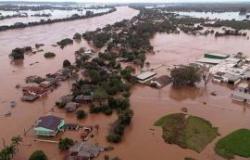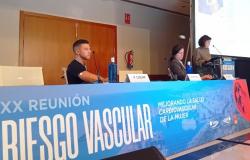MADRID, April 25 (EUROPA PRESS) –
The United Nations Educational, Scientific and Cultural Organization (UNESCO) has warned that social networks affect girls’ well-being, learning and career options.
This is stated by the United Nations agency in its report ‘Technology on their terms’, which concludes that, although digital technologies can improve teaching and learning, they also present risks such as invasion of privacy, distraction in education and cyberbullying.
Specifically, the report explains how social media amplifies gender stereotypes, producing negative effects on girls’ well-being, learning and career options.
“Minors are increasingly socializing through social media. But too often, algorithm-based platforms amplify their exposure to gender stereotypes,” says UNESCO Director-General Audrey Azoulay.
For the director general of UNESCO, the design of these platforms “must take into account ethical considerations.” “Social media should not confine women and girls to roles that limit their educational and professional aspirations,” she says.
The report warns that image-based and algorithm-controlled content, especially on social media, can expose girls to materials ranging from sexual content to videos that praise unhealthy behaviors or unrealistic body standards.
This exposure can have especially detrimental effects on girls’ self-esteem and body image. In turn, this impacts their mental health and well-being, which are essential for academic success.
The report cites a Facebook study according to which 32% of teenage girls who feel bad about their bodies feel worse because of Instagram. It also highlights the addictive design of TikTok, characterized by short and attractive videos, a model of instant gratification that “can influence attention and learning habits, making it difficult to concentrate for a long time on educational and extracurricular tasks.”
GIRLS SUFFER MORE CYBERBULLYING THAN BOYS
On the other hand, it reflects that girls also suffer more cyberbullying than boys. On average, in OECD countries with available data, 12% of 15-year-old girls reported having experienced cyberbullying, compared to 8% of boys.
This situation is exacerbated by the rise of image-based sexual content, AI-generated deepfakes, and “self-generated” sexual images circulating online and in classrooms. Female students in several countries analyzed in the report said they had been exposed to images or videos they did not want to see.
The results demonstrate the importance of increasing investment in education – including media and information literacy – and “smarter” regulation of digital platforms, in line with the UNESCO Guidelines for the Governance of Digital Platforms, launched in November from last year.
The report concludes that all these factors create “a vicious circle”: Girls are exposed to negative gender stereotypes amplified by social networks, which keeps them away from science, technology, engineering and mathematics (STEM) studies because they are considered masculine fields. and, as a consequence, they are denied the possibility of designing the tools that promote these stereotypes.
According to UNESCO data, women only represent 35% of STEM graduates worldwide, a figure that has not changed in the last ten years. The study shows that persistent prejudices “deter women from studying STEM careers, resulting in a shortage of female labor in the technology industry.”
Women occupy less than 25% of jobs in science, engineering, information and communication technologies. They only make up 26% of employees in data analytics and Artificial Intelligence, 15% in engineering and 12% in cloud computing in the world’s major economies. Globally, women only file 17% of patent applications.






